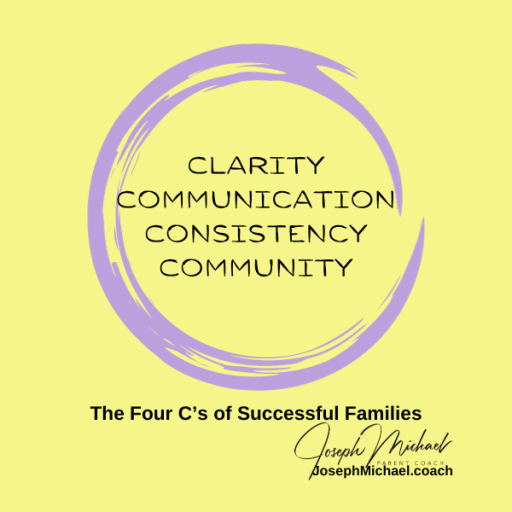
How to Achieve Serenity in a Married Relationship with Children
In today’s fast-paced world, maintaining a sense of serenity within marriage, especially with the added responsibilities of raising children, can often feel like a distant dream. Yet serenity, or the state of calm, peace, and untroubled tranquility, is desirable and crucial to fostering a healthy, fulfilling relationship and nurturing a harmonious family environment.
This blog post will explore the importance of serenity in marriage and how to cultivate it amid the demands of raising children. We will delve into the challenges, provide practical strategies, and discuss the emotional, psychological, and spiritual rewards of prioritizing serenity in family life.
Understanding Serenity in Marriage
Serenity is more than just the absence of conflict. Serenity means creating an atmosphere where mutual respect, understanding, patience, and love can thrive in marriage and family life. It is about establishing a foundation where peace and calmness become the default setting, even when life throws inevitable challenges your way.
When both partners cultivate serenity, it acts as a stabilizer, preventing the small stresses of daily life from escalating into more significant issues. Serenity allows couples to approach problems with clarity and compassion, creating a safe and loving environment where children can flourish emotionally and psychologically.
The Challenges of Serenity in a Marriage with Children
Achieving serenity in a relationship with children is no small feat. Children bring immense joy, but they also introduce unpredictability and constant responsibility that can make serenity seem elusive. Between sleepless nights, the chaos of managing schedules, financial stresses, and navigating parenting differences, it can be easy to lose sight of calmness.
Moreover, the emotional intensity of marriage itself – the merging of two different personalities, communication styles, and life experiences – can lead to friction. Add children to the mix, and the pressure multiplies.
Parents often fall into the trap of focusing exclusively on their children’s needs, neglecting their own emotional well-being and the health of their marriage. This lack of attention can foster resentment, tension, and burnout, which are serenity’s antithesis.
Despite these challenges, cultivating serenity in family life is possible, but it requires conscious effort, commitment, and certain practical strategies.
How to Achieve Serenity in a Married Relationship with Children
1. Prioritize Self-Care for Both Partners
Serenity in marriage starts with individual serenity. Both partners need to prioritize their physical, emotional, and mental health. This is especially true for parents who are often pulled in multiple directions.
-
-
- Physical health: Ensure you and your spouse have time for exercise, sleep, and proper nutrition. When your body is tired and overworked, it’s easy to become irritable, which disrupts the family dynamic.
- Emotional health: Carve out time for self-reflection, relaxation, and hobbies. This could be through meditation, journaling, or simply taking a walk. Emotional well-being is crucial to maintaining a peaceful mindset.
- Mental health: If stress or anxiety becomes overwhelming, consider professional counseling. Taking care of your mental health equips you with the tools to face family challenges with grace and patience.
- Remember that self-care isn’t selfish; it’s essential. When both partners feel balanced and rested, they are better equipped to nurture serenity in their relationship and family.
-
2. Communicate Openly and Honestly
Good communication is the backbone of any serene marriage. In the hustle and bustle of raising children, couples can lose the habit of checking in with each other. They might assume their partner knows their feelings or thoughts, but assumptions can sometimes lead to misunderstandings.
-
-
- Schedule regular check-ins: Set aside time, even if just 10-15 minutes a day, to talk openly about your day, your feelings, and any concerns. This can prevent small issues from snowballing into larger problems.
- Listen without judgment: True serenity comes when each partner feels heard and respected. When communicating, focus on listening to understand rather than responding. Resist the urge to be defensive.
- Use “I” statements: When addressing conflicts, avoid blaming language. Instead, focus on expressing your feelings and needs with statements like “I feel overwhelmed when…” or “I need help with…”.
-
3. Embrace Imperfection
One of the greatest obstacles to serenity is the pursuit of perfection. Between social media images of seemingly perfect families and societal pressures, it’s easy to feel like you’re not doing enough. However, serenity can only thrive in a space where imperfection is accepted.
-
-
- Let go of unrealistic expectations: Accept that your home will not always be spotless, your children will not always behave perfectly, and you and your spouse will have disagreements. This is normal. What matters is how you respond to these imperfections.
- Practice grace and forgiveness toward yourself and your spouse: Mistakes will be made in parenting, communication, and stress management. The key is approaching these mistakes with grace and not dwelling on them. Serenity is cultivated when both partners feel safe making mistakes without fear of harsh judgment.
-
4. Create a Peaceful Home Environment
The environment in which you live has a direct impact on your emotional and mental state. A cluttered, chaotic home can lead to stress, whereas a calm and organized space can promote peace.
-
-
- Declutter regularly: A home filled with unnecessary items can cause anxiety and hinder serenity. Take time to declutter your home periodically and only keep items that bring value or joy.
- Incorporate calming elements: Add elements to your home that promote relaxation, such as soft lighting, comfortable furniture, and calming scents like lavender or chamomile.
- Establish routines: Having daily or weekly family routines can bring a sense of stability and order. Whether it’s a family dinner every night or a designated time for quiet activities, routines help reduce stress and create predictability.
-
5. Model Serenity for Your Children
Children are incredibly intuitive and pick up on their parents’ emotional states. Children will likely internalize this tension if parents are stressed, anxious, or constantly arguing. Conversely, when parents model serenity, children learn to handle emotions and challenges calmly and resiliently.
-
-
- Practice mindful parenting: Respond to your children’s behavior calmly rather than reactive anger. This teaches them emotional regulation.
- Encourage emotional expression: Create a space where you and your children can express feelings openly and without judgment. When emotions are not suppressed, serenity has room to grow.
-
6. Nurture Your Relationship Outside of Parenthood
It’s easy for couples to get so wrapped up in their roles as parents that they forget to nurture their relationship as partners. However, a strong, loving marriage is foundational to a serene family life.
-
-
- Date nights: Find ways to reconnect even if you can’t get out of the house. Watch a movie together after the kids go to bed, cook a special dinner, or sit and talk.
- Small acts of love: Regularly show appreciation for your spouse in small ways. A kind word, a loving touch, or a thoughtful gesture can go a long way in maintaining a peaceful, loving relationship.
-
7. Seek Spirituality or Meaning
Whether through religion, mindfulness, or other spiritual practices, finding a source of meaning and purpose beyond the daily grind can bring immense peace. Spirituality offers a broader perspective, reminding you that life’s challenges are temporary and manageable in the grand scheme of things.
-
-
- Practice meditation or prayer: Daily mindfulness or prayer practices can calm your mind and help you focus on what truly matters. Use prayer not to ask for things but to express appreciation for what you have.
- Teach gratitude: Practice gratitude as a family. Before meals or bedtime, take a moment to reflect on what you’re thankful for. Gratitude shifts focus away from stress and toward appreciation.
-
Serenity is not an impossible goal in a busy family life; it is a virtue that can be cultivated with intention and practice. By prioritizing self-care, fostering open communication, accepting imperfection, creating a peaceful home, and nurturing your relationship, you and your spouse can achieve serenity in your marriage, even amidst the demands of raising children.
Ultimately, serenity isn’t about eliminating stress or challenges; it’s about learning to navigate them with grace, patience, and love. This strengthens your marriage and creates a safe and nurturing environment where your children can grow up feeling secure and valued.
Joe is a husband, father, grandfather, author, speaker, educator, course creator, and parent/family coach.
He helps parents develop unity, find clarity, communicate, and develop consistency in their parenting with the Four C’s of Successful Families. You can find his work on social media.
In addition, the Four C’s newsletter is enjoyed by many as it encourages parents to self-care, build their relationships with their partners, and raise their children.
And he loves to golf!





